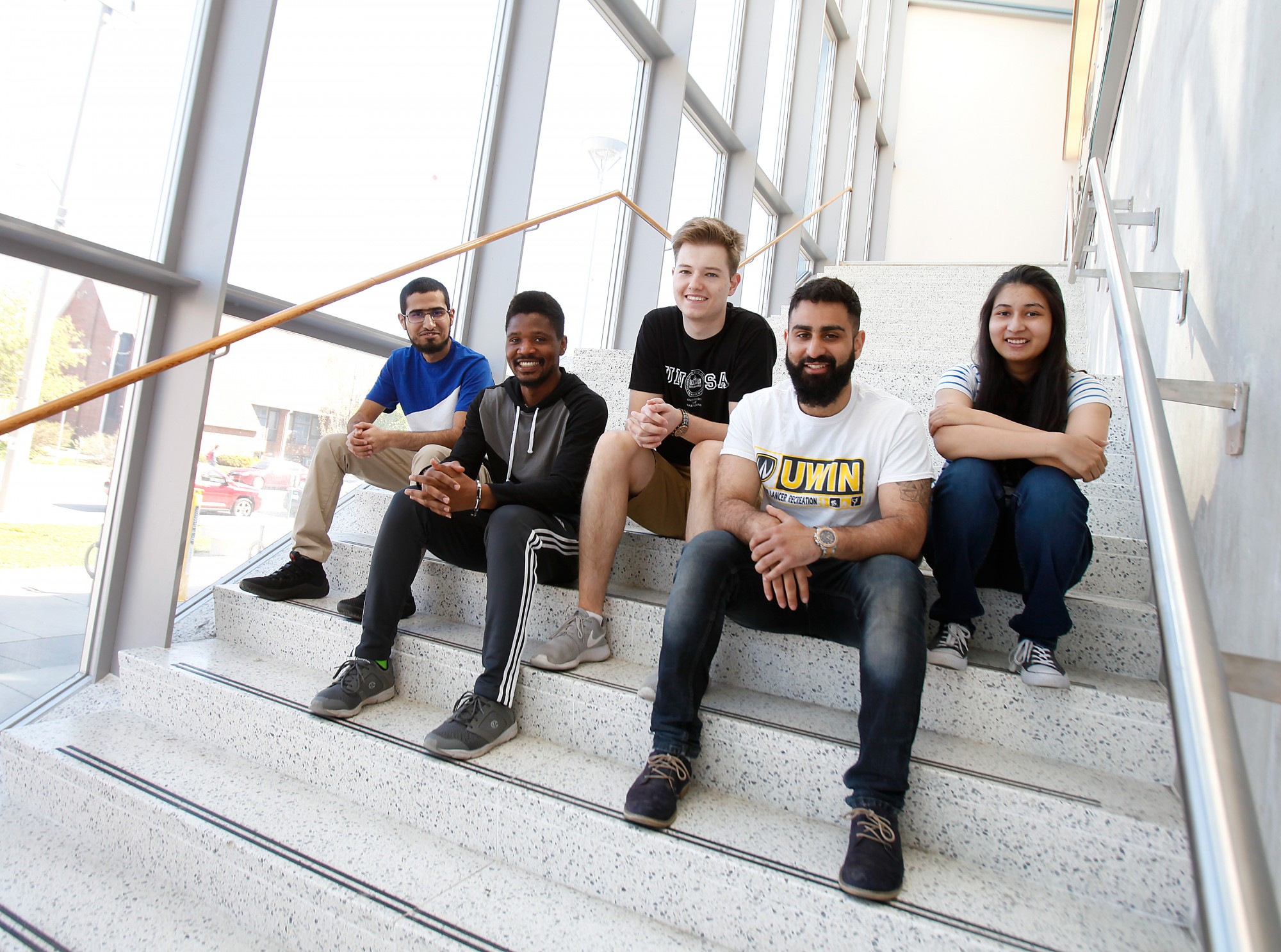 Abdul Abdul, Jonathan Byensi, Damir Ferhatovic, Ankit Bhat and Shreya Patki (L-R) will travel to the United Kingdom to take part in water treatment projects. (Laura George not pictured)
Abdul Abdul, Jonathan Byensi, Damir Ferhatovic, Ankit Bhat and Shreya Patki (L-R) will travel to the United Kingdom to take part in water treatment projects. (Laura George not pictured)
Six engineering students will spend the summer in the United Kingdom improving their research skills in water treatment and renewable energy technologies.
As part of the Canadian Queen Elizabeth (QE) II Diamond Jubilee Scholarships program, the third-year mechanical and civil engineering students will spend three months abroad collaborating on two separate projects with Aberystwyth University and the University of Surrey.
Ankit Bhat, Shreya Patki and Damir Ferhatovic, will travel to Guildford, Surrey to work with Dr. Martand Singh on a project that focuses on using concentrated solar power for sustainable water desalination — the removal of salts and minerals to produce water suitable for human consumption or irrigation.
“I find it very interesting to be working on something that will be used in our generation,” says Bhat. “Water scarcity is a major issue. If we can convert salt water to clean drinkable, potable water using sustainable energy, we can solve one of our world’s biggest problems in providing clean water around the globe.”
Laura George, Jonathan Byensi and Abdul Abdul, will venture to Wales to work with Dr. Sreenivas Ravella at Aberystwyth Universityon producing biofuels from low-value biomass.
The students will work at Aberystwyth University’s BEACON Pilot Plant Facility with multi-stage bioprocessing equipment configured with steam explosion, centrifugation and filtration to produce a feedstock which can be fermented to ethanol.
Dr. Jerald Lalman, a faculty member in UWindsor’s Civil and Environmental Engineering Department, says this is an excellent opportunity for students to gain hands on experience with biomass to fuel conversion processes.
The students leave the first week of June and return early September.
“I’m excited about the environmental aspect,” says Patki. “It’s different than the regular mechanical stuff we work on and we get a chance to learn more about engineering in general.”
